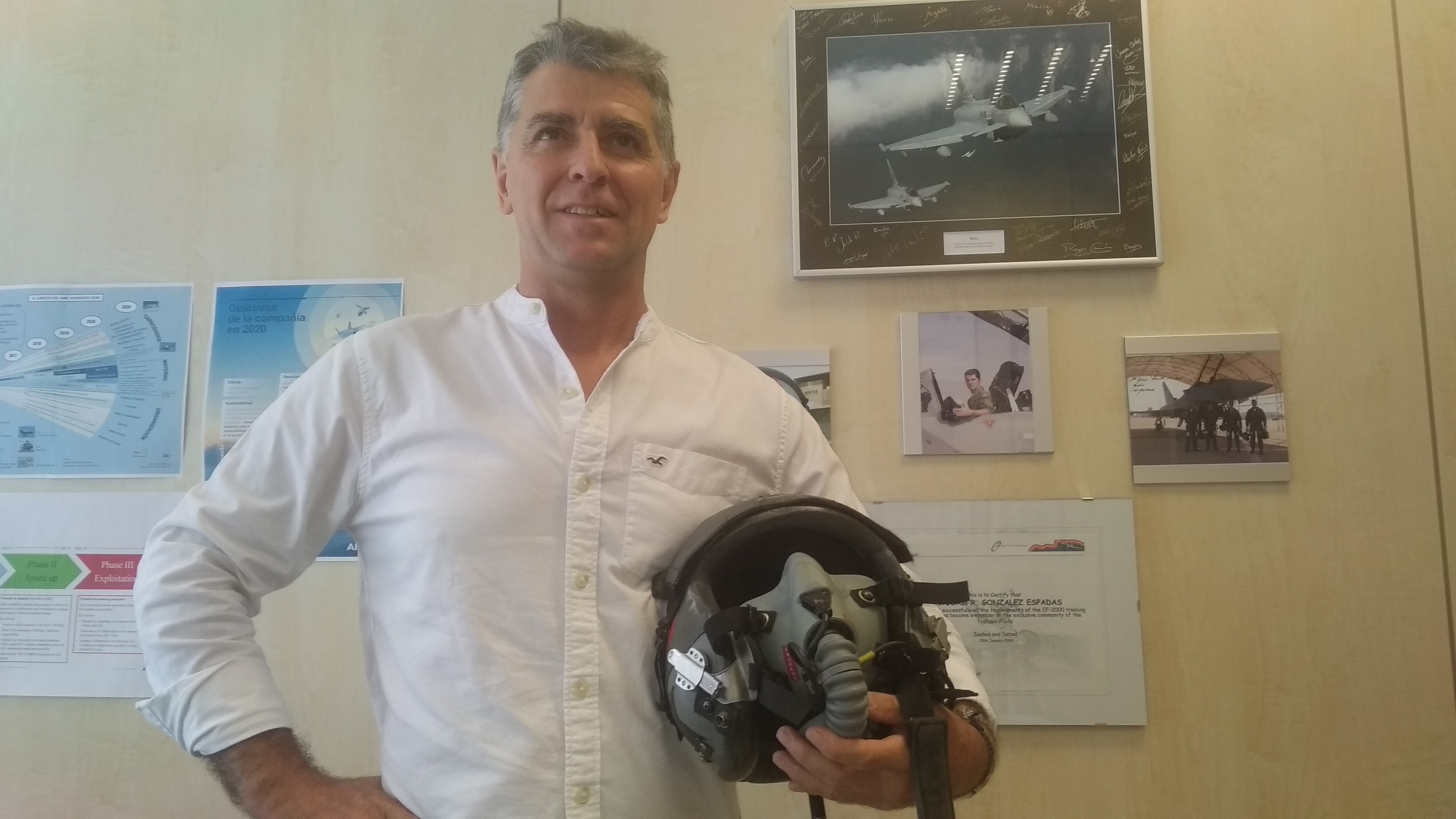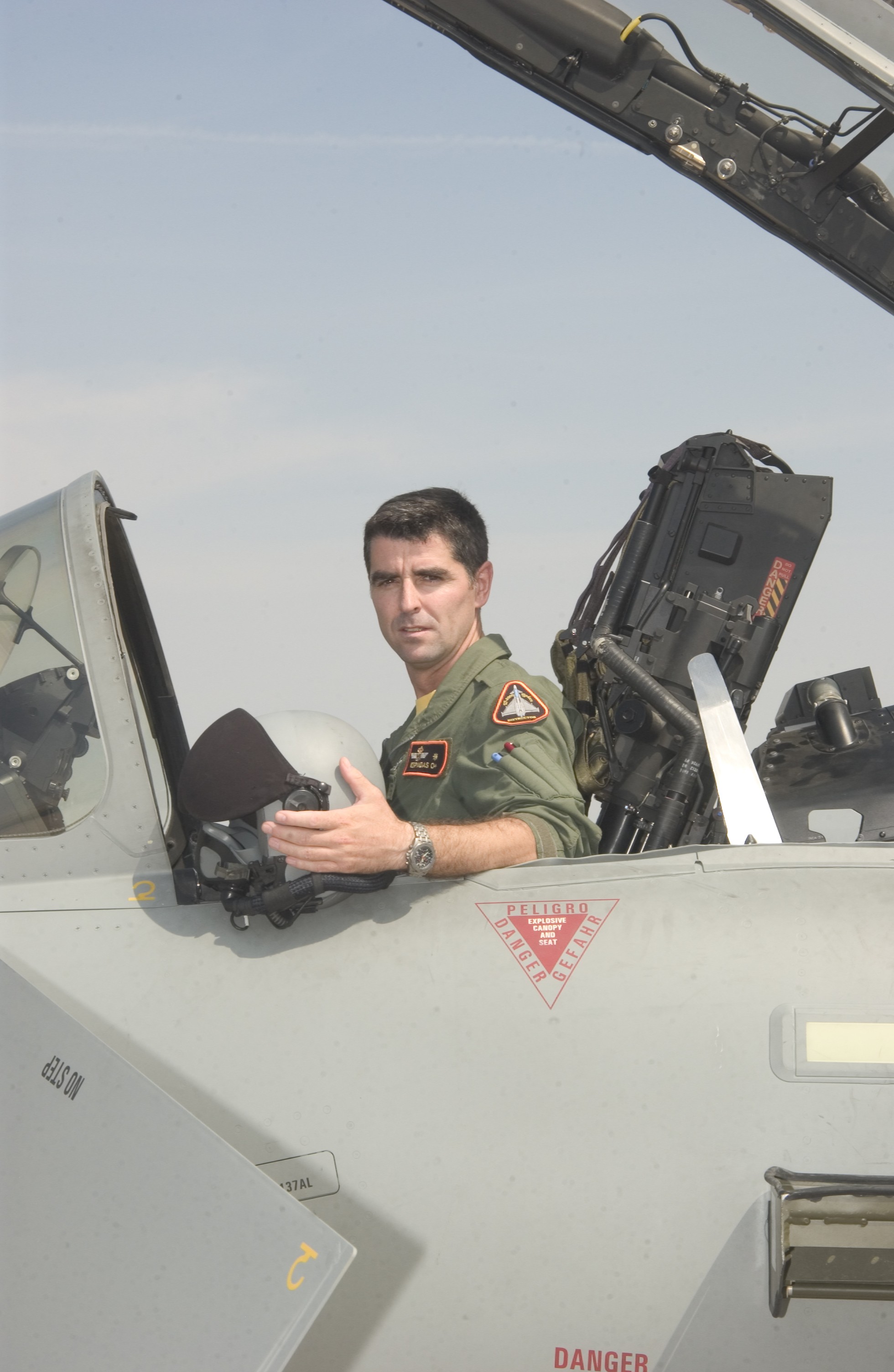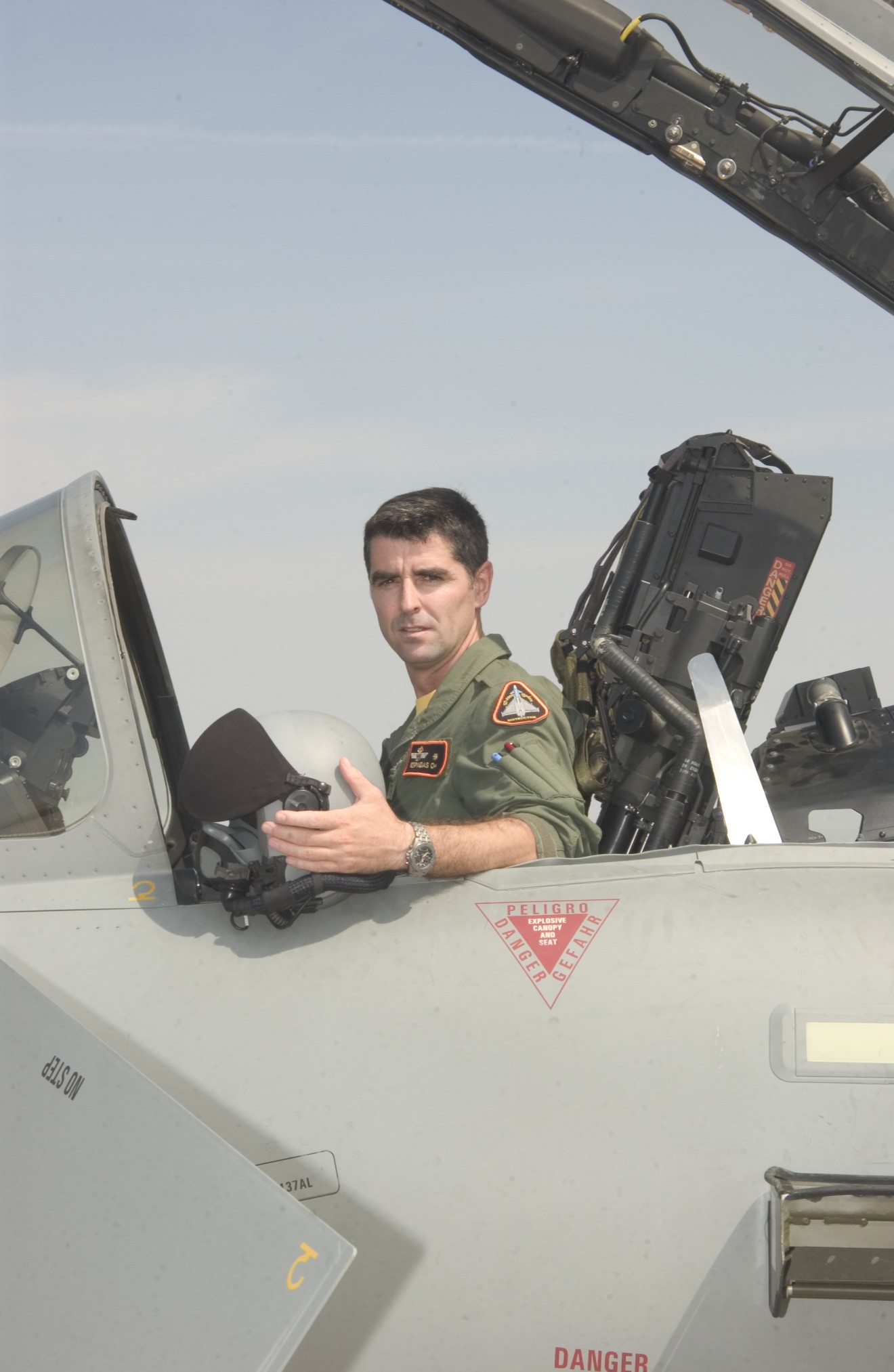How was it moving from flying Eurofighter to flying a desk?
It was a strange feeling, despite it being a decision I’d given a lot of consideration to. It meant I had to change the concept of space, the concept of time — because just imagine, going from flying at 50,000 feet, moving above the speed of sound and living in three dimensions, to shifting to a place where time, speed and the environment are completely different.
I needed a period of adaptation to get used to my new ‘theatre of operations’. In industry the rules of the game are different; here other factors count and it’s a place where multilateralism is a cornerstone.
The thing is, the role of a fighter pilot is individualistic. You fly alone, you evaluate things alone, you take the decisions alone. Now everything is different, because your relationships with other individuals are essential from beginning to end. Some parts of the military world are like this, but here in industry certain factors are accentuated.
How has your experience flying Typhoon shaped your interaction with business colleagues when discussing programme issues?
My main contribution is being able to share the vision of the user, not so much that of the customer. This is a fundamental difference. A pilot represents the last link in a long chain that began when a person outlined on a sheet of paper, long ago, the first design of this magnificent weapon system.

Juan Ramón González Espadas
How has you view of industry changed over that time?
The change has been very positive. I learn new things every day and I have been enriched by the experience both as a person and as a professional.
I would export to the world of industry, values and behaviours from my military experience. And vice versa, I would export to the military world attitudes, ways of doing and thinking that I have learned in my professional life at Airbus and Eurofighter Jagdflugzeug GmbH.
What can industry learn from ‘incoming’ practitioners?
Industry has a chance to understand the world as seen by the end user of a product that thousands of people have worked on for years. Incoming professionals to some extent break patterns of thought and behaviours, and provide different potential approaches to existing problems.

Juan Ramón González Espadas in his flying days
What can the air forces learn from industry processes?
An understanding of the sheer complexity of a programme like this: the variety of factors, industrial, economic, social, political, legal, that define the playing field in which the industry has to operate.
I’d also add that they might appreciate that there are many people who do not wear the military uniform, but who are deeply aware of the importance of defence to safeguard the values of our society.
